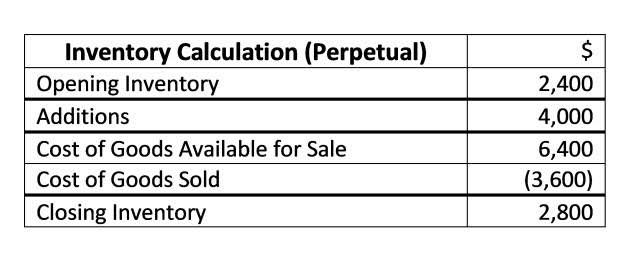
It allows you (and investors) to understand how well your company handles debt and expenses. By summarizing this data, you can see if you are making enough cash to run a sustainable, profitable business. In cash-based, you recognize revenue when you receive cash into your business. In other words, any time cash enters or exits your accounts, they are recognized in the books.
Forensic Accountant

With this in mind, let’s break these methods down so you can find the right one for your business. There, you may find posts about any recent accomplishments as well as more about the culture. It’s also important to note that, when you start out, you may not earn that much.
- It can also refer to the different recording techniques businesses can use.
- This makes them convenient for very small businesses but too simplistic for enterprises.
- For example, let’s say that your business is losing money each month or that your overhead costs are too high.
- Knowing the differences between the two can help people find their niche in the industry and can give guidance to companies on who to hire for their needs.
- Bigger companies tend to offer better compensation for bookkeepers; this is largely due to the increased volume of transactions and data.
- If you choose to work for a company internally instead of in public accounting, the starting salary range is very broad.
- Records of commercial contracts have been found in the ruins of Babylon, and accounts for both farms and estates were kept in ancient Greece and Rome.
You’re our first priority.Every time.

You need to decide which accounting method you will use for your company. Either way, it’s critical to have an accurate balance sheet and income statements. Bookkeeping is the recording meaning of bookkeeper of financial events that take place in a company. Any process of recording financial data is considered bookkeeping and is the first step of data entry into the accounting system.
- Try our bookkeeping software for free and see how it can help your business maintain perfect bookkeeping records.
- But what do all of these figures mean, and where do you go from there?
- Duties and ResponsibilitiesA bookkeeper’s duties and responsibilities encompass a range of financial tasks necessary to maintain accurate and organized records for a business or organization.
- Bookkeeping is the process of recording your company’s financial transactions into organized accounts on a daily basis.
- The person in an organisation who is employed to perform bookkeeping functions is usually called the bookkeeper (or book-keeper).
- Though having a two-year or four-year degree isn’t always required to be hired as a bookkeeper, some companies may prefer candidates who do.
The journal
- This way, you can determine how much change remains at the end of the day.
- Bookkeepers offer support to several organizations, including small businesses, nonprofits, and corporations.
- It is indispensable to have a knowledge of accounting and to understand how to use accounting software systems.
- And, when it comes time for the hiring manager to make a decision, each and every one of those things can matter.
There are a variety of methods for this, including single-entry and double-entry systems. Xero is a great option if you deal with any international transactions or have multiple currencies. It offers real-time cloud bookkeeping, and also gives you access to certified accountants. It’s a great choice for any business that needs financial support and advice from its bookkeeping app.
What is the Difference Between Bookkeeping and Accounting?
The rise of manufacturing, trading, shipping, and subsidiary services made accurate financial records a necessity. The history of bookkeeping, in fact, closely reflects the history of commerce, industry, and government and, in part, helped to shape it. It is a financial report that tracks incoming and outgoing cash in your business.
Bookkeepers maintain accurate records of a range of transactions, issue financial reports, reconcile data, and otherwise ensure that the money coming in and out of the business is accounted for and tracked. In some cases, they also handle payroll processing, though that can vary depending on the size of the organization. The primary purpose of bookkeeping is to record the financial effects of transactions. An important difference between a manual and an electronic accounting system is the former’s latency between the recording of a financial transaction and its posting in the relevant account. A bookkeeper is responsible for recording transactions into the system, which is part of the wider and more general practice of accounting. Modern accounting software is the repository of all financial transactions for your company and can generate requisite reports in real-time.
